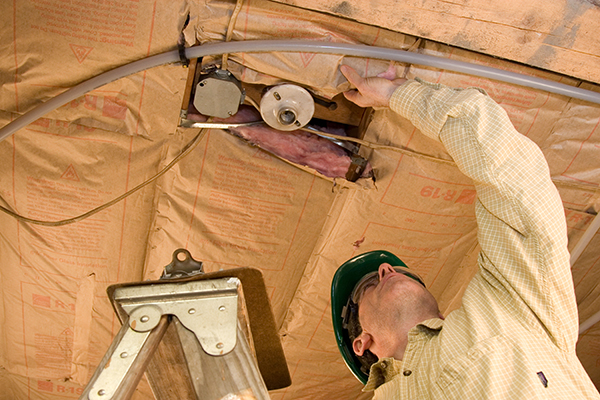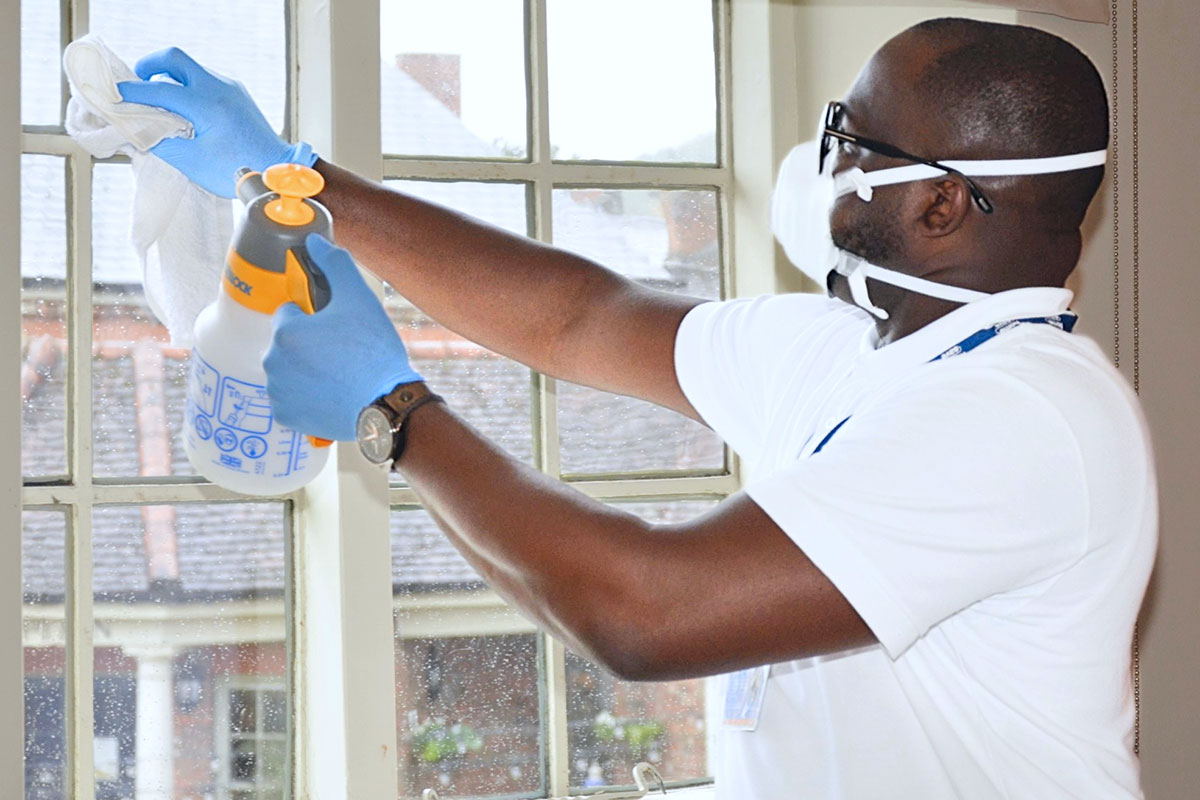Taking stock
A comprehensive survey is the first step to ensure housing meets current regulatory standards, says Rob McCormack. Photography by Alamy
In association with:

What have you found are the key challenges for social landlords in ensuring the continued performance
of their housing stock?
The areas we have learned are of utmost importance for social landlords are evidencing value for money to lenders and stakeholders from both investments and operational efficiencies, delivering compliance requirements and achieving tenant sustainability.
What should be the first steps for social landlords looking to re-evaluate their housing stock?
Efficient housing stock evaluation can be achieved through completion of suitably detailed housing stock condition surveys. The results of those surveys then need to be compared with existing information held about the condition of the property. This makes it possible to identify the potential overall cost of maintenance works necessary to meet required housing standards, and to budget accordingly.
How important is it for landlords to properly record the results of the stock condition surveys they undertake?
Accurate and up-to-date results of stock condition surveys are crucial to landlords’ understanding of the current performance, condition and future maintenance requirements of their housing stock. Once those are then compared with historical data, landlords should be able to identify, budget and plan for the most appropriate, cost-effective and long-term property maintenance solutions to be applied to their housing stock.
What are some of the most common issues in properties you inspect?
With our area of expertise being the assessment of insulation retrofit performance, we mostly encounter the consequences of housing stock condition deteriorating due to inappropriate insulation retrofits or improperly installed insulation products. In most cases, this is because insufficient property inspections were completed by the third parties contracted to deliver insulation retrofit works.
Because of this, insulation retrofit installations continue to be applied to properties that aren’t suitable to receive them. The result will be further deterioration, and landlord or homeowner investment may be necessary to resolve future defects. We find contractors also often fail to assess the current property condition accurately and identify any existing defects.
We are also witnessing a significant rise in cavity insulation extractions and re-installations taking place. In many cases these are not being completed in accordance with any industry best practice guidance.
With increasingly tight budgets, how can landlords derive efficiency in the asset management process?
We believe it is imperative that landlords ensure asset management data is updated in accordance with completion of all cyclical maintenance works. This allows landlords to understand the current condition and future requirements of their housing stock and enables them to identify and budget for the most cost-effective solutions to deliver ongoing improvements.
I would argue that frequent analysis of housing maintenance costs, and identifying trends in both asset performance and repeat housing maintenance works, is also key. Applying due diligence to housing maintenance works quality assurance and achieving an understanding with house dwellers of any operating and future maintenance requirements is important, too.
There is also a benefit in landlords identifying appropriate guarantees for housing improvement works and understanding any future maintenance requirements for which there may be the need to budget.
Can you share any good practice examples of effective stock management?
We continue to see examples of effective stock management resulting from the services we provide to our local authority and housing association partners. For example, through identification of defective or inappropriate insulation retrofits, landlords have now adopted alternative methods for the future assessment of their housing stock’s suitability for such installations. These are conducted independently of their nominated installation contractors.
“Landlords are requiring all future insulation retrofit installations to be independently assessed.”
This approach has enabled landlords to receive an independent and impartial ‘health check’ of their housing stock. This then provides an overall fact-based technical assessment of the property condition, its suitability for future insulation retrofit installations and identification of any associated remediation requirements.
To further safeguard their housing stock when completing housing improvement works, some landlords are requiring all future insulation retrofit installations to be independently assessed during and post-installation. This gives them the peace of mind that installations are completed in accordance with agreed specifications.
How do you see the property inspection process changing in the future?
From the evidence of the improvements social housing landlords are managing to achieve from the services we provide, I believe that an independent and impartial approach to property inspection/housing stock assessment will benefit more landlords in the future.
We are beginning to witness more landlords adapting their approach to stock management through implementation of specialist independent property inspections. These assess the current condition of their housing stock, informing them of fact-based findings identifying short, mid and long-term maintenance requirements and cost-effective solutions. And to then safeguard their housing stock when completing future installation programmes, some landlords are experiencing the benefits of work in progress and post-installation independent monitoring processes, ensuring their housing stock is being maintained to the highest possible standard and making best use of public funds by avoiding future unneeded property remediation expense. I think this is a valuable model which many landlords will find is worth investigating further.
Biography
Rob McCormack is director of BBA CIT Consultancy, Investigation and Training. The body’s investigation services are designed to assist those dealing with the consequences of inappropriate insulation retrofits or improperly installed insulation products. Rob has more than 15 years’ experience in the energy and construction sectors and his ultimate aim is to raise industry standards to the benefit of home dwellers.








